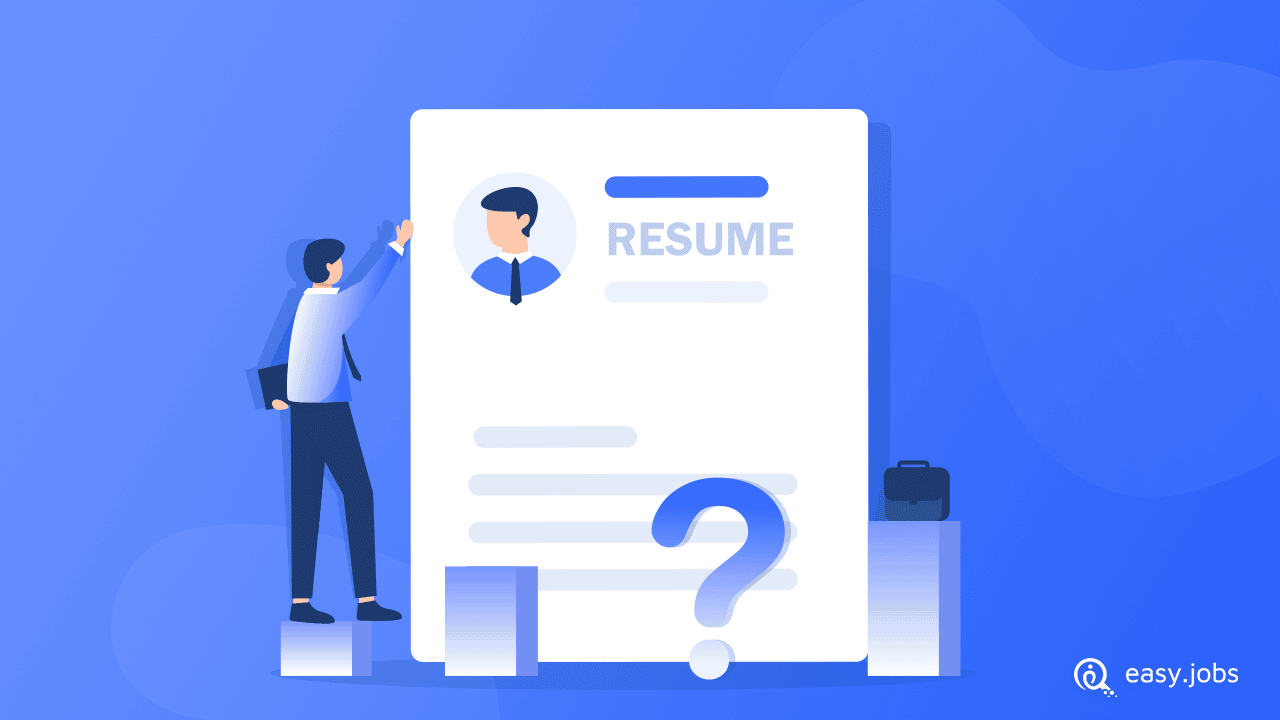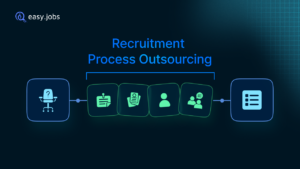You might have some employment gaps on your resume for a variety of reasons. This can have occurred because you were taking a study break, investing time in skill development, or giving your personal life more priority. These gaps in employment will make your job prospect more challenging. That is why this blog will discuss how and when you can explain employment gaps with possible reasons.

Many people who were fired during the global epidemic believe there is a corporate stigma attached to being unemployed for a period, according to recent research by LinkedIn. Quite a percentage of people think they would face a huge obstacle to obtaining a new job in this situation. An employment gap should not be the end of the world after all. Let’s see what this concept is about and how to tackle this by being in any circumstances.
Employment Gap: How Much Should You Be Worried About It?
You may have taken a professional hiatus from your work owing to family growth, illness, or several other factors. If you do not know how to handle this professional gap in your future attempt, it could cause you significant issues. Your professional gap, whether it was chosen intentionally or not, needs to be included on your resume.
Do you need to worry about it? No… and yes. Yes, you must be ready to answer numerous inquiries about the employment gap if you do not explain it. That will eventually cause you to make a wrong impression on potential employers.
Another answer is no because you can always take a break from your professional career and still stay productive. Examining a candidate’s CV is mainly done to gauge their level of professionalism and productivity. If you can showcase your qualities, you can still be in the game. Let’s see how you can handle this tactfully.
Easy Ways To Explain Your Employment Gap In Your Resume
Gaps in employment can make you seem out of skill and practice to some people. But this is never the truth. Your employment gap can be a few months or even years. But that does not put you in any position to become unfit for your desired job. So let’s try to understand how you can cover up this professional gap in your resume and devise a better plan to tackle any unpleasant situation.
🔔 Prepare For Joining A New Job
When you are not doing any professional job, you still can be invested in professional skill development that will eventually help you to suffice for the employment gap you are taking in front of your recruiters. On the one hand, you will be able to become more fit and suitable for the desired job role, on the other hand, your resume will not appear as unprofessional. You can invest this time in gaining practical knowledge and earning certifications that can be valuable in your relevant field. This type of training session can help you to fill the employment gap quickly.
🔔 Decide To Add Or Deduct Employment Gaps
While creating a resume for any job application, adding all of your experience is not essential. Most importantly, you should think and consider which experiences are worth mentioning. Just like this, you should also know which employment gaps must be mentioned.
Suppose you have taken gaps in employment at the beginning of your career, but after that, you successfully kicked off professionally, then the early gaps are not worth mentioning. Therefore, you must decide which ones you want to mention in your resume.
🔔 Provide Enough Context To Your Professional Gap
Of course, your resume does not have enough space to write any elaborate explanation for your employment gap. But you also need to submit a cover letter, which is a great scope to come up with a small explanation for the professional gaps you have taken. Make the best use of this space concisely.
On the other side, you must address this and provide solid reasons during the interview sessions. Your employment gaps won’t seem to be a problem if you can achieve that. Instead, your justification will support your position. Try to be as sincere as you can, and include enough background information so that your employer, unaware of your situation, can comprehend it immediately.

🔔 Try Out Different Formats For Resume
When choosing a format for your resume, you will see various types of resume styles available. In your case, you can choose a hybrid format for your professional resume. That means, that both functional and chronological approaches can make your resume stand out even though you have gaps in employment. This approach will help you to cover up for the situation. You can add your academic achievements and a chronological list of job experiences with career notes. In that way, your time gaps will not be focused at all.
🔔 Maintain Upbeat Appearance Both On Paper & In-person
This point is crucial for anyone who is going to join the job industry. Even though you have a gap in your professional career, you must remain optimistic and self-confident. It will definitely be shown when you appear for any job interview. Instead of focusing on the employment gaps, you should highlight the achievements of hard and soft skills, along with experiences you have had in your life. When creating a resume, you can give a snippet of your experiences. In that way, the recruiters will be convinced that you have not lost your spark in your professionalism and enthusiasm. After all, all the recruiters are looking for in any employee.
🔔 Structure Your Resume In A Feasible Way
You might have brought immense change in your professional approach even after taking an employment gap and sorting out your resume already. But still, your resume shows a huge employment gap which is an issue; you can simply change the structure of your resume.
Suppose you might have worked in a company from August 2016 to August 2017. And then you took three months of break and joined another company in December 2017. Instead of showing this small professional gap, you can simply show the first job timeline as 2016 to 2017, and then 2017 to the present. In this way, disguising your gaps in employment will not harm your future endeavors.
A Feasible List For Employment Gaps Taken By People
People from all over the world are constantly facing different challenges, causing them to keep pausing in their professional lives. There are multiple reasons for taking a periodical gap which can be intentional or unintentional. After thorough research, we have come up with a handful of possible and common reasons below. Check these out and see if you find your reasons here or not.
📌 People take professional gaps when they are changing their location. Whether it’s from one district to another or one country to another, this movement can be a hassle for anyone. So taking a professional break for months can be understandable for anyone who is recruiting.
📌 Due to organizational changes, people usually need a break. That means, when someone has decided to switch to a software company from an MNC, they will want to fill gaps in employment and take their time to return to working life.
📌 Medical issues are the most common reason among working people. Accidents, health injuries, etc are constantly happening around us. And it is not surprising to take medical leave for quite a few years. So it is another reason why people have gaps in employment.
📌 Professional growth comes when you are skilled enough. That’s why people are more eager to perform better than to perform hard. This is why they are keen to take professional gaps to develop themselves by doing courses, taking classes, and achieving certificates related to their job fields. This gap can be also used as a period for self-growth.
Usually, how you fill your free time and how you describe your employment gap on your CV are more significant factors than the reason for your employment gap. Therefore, attempt to emphasize the benefits received from your gaps in employment rather than any drawbacks when outlining work gaps on your resume and cover letter.
If you find this blog interesting and fun to read, subscribe to our blog to explore more. And if you want to share your valuable thoughts and experiences, join our super-friendly community as well.






